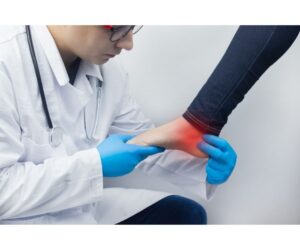What to expect during your diabetes review:
When you are diagnosed with Type 2 diabetes, a review should be carried out at least once a year to allow doctors to be able to monitor your health and control the progression of your diabetes.
The review in your GP surgery will include:
Height and Weight:
To help monitor your weight and check your BMI.
Blood Pressure:
This will be taken at least annually but if you have hypertension, then this will be taken more frequently depending on your treatment plan.
HbA1c:
A blood test to check your HbA1c will be carried out annually but can be on a 3 or 6 month basis, depending on your levels and your treatment plan.
Cholesterol:
An annual cholesterol check is also part of the annual diabetes review. The cholesterol targets that we would aim towards are:
- Total cholesterol – under 5
- HDL (Good cholesterol) – 1 or above
- LDL (Bad cholesterol) – 4 or below
- Triglycerides (fat levels in the blood) – 2.3 or below if not fasted or 1.7 or below if taken when fasted
Medications:
Your annual review will also look into the medication that you are taking and determine whether you will benefit from starting a medication, need a change in the type or amount you are taking or if you need a different combination depending on your circumstances. It is vital that you let the diabetes team know if you are getting any side effects from medications.
Lifestyle Changes:
There should also be time to talk about your general mental well-being, sexual health, diet, smoking status and you should be offered a free flu jab each winter.
Foot Checks:
These are performed within your GP surgery diabetes review and can include a microfilament test which includes a small needle to check the feeling and sensations in the foot as well as the pulse and general skin condition.
Additional checks include:
- Checking the skin colour, temperature and any changes to the skin as well as pulses
- Check for ulceration

- Check for callus
- Any signs of infection or inflammation
- Any deformity of the limb
- Any signs of gangrene
It is advised that daily self-checks are carried out by the individual to observe any sores, dry skin patches or skin abnormalities. Consult a GP if you notice any changes.
Eye Screening:
This should be done annually from the age of 12 and is usually carried out at your local eye hospital.
If you have any concerns about anything related to your health, always consult a GP or your diabetes team.
References:
Diabetes.co.uk (2019) Diabetes Annual Care Review. Available at https://www.diabetes.co.uk/nhs/diabetesannual-care-review.html (Accessed on 19 December 2022).
NHS (2020) Going for Regular Check-Ups. Available at https://www.nhs.uk/conditions/type-2-diabetes/goingregular-check-ups/ (Accessed on 19 December 2022). NHS (2022)
What is a Diabetic Eye Screening? Available at https://www.nhs.uk/conditions/diabetic-eyescreening/ (Accessed on 19 December 2022).